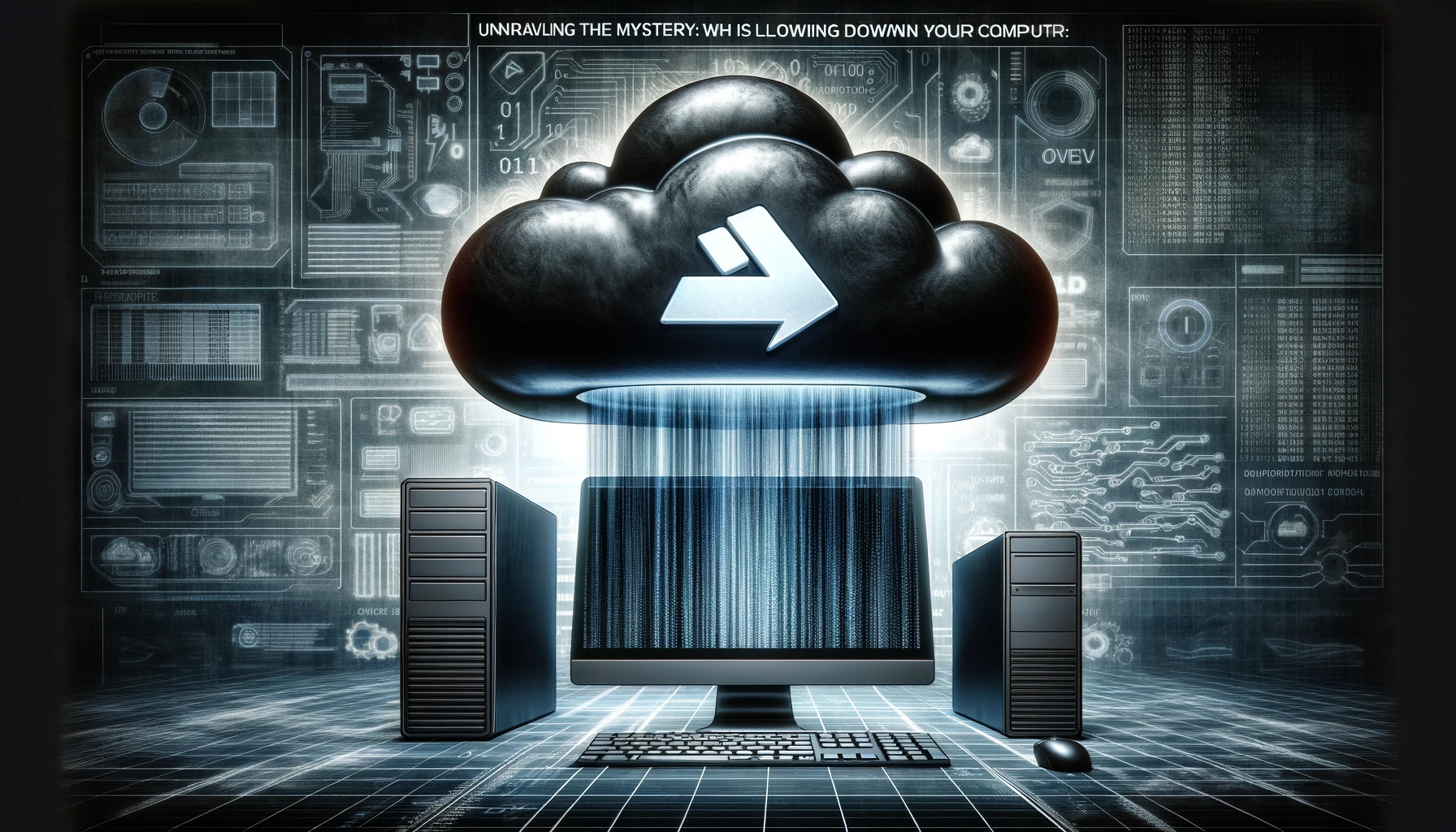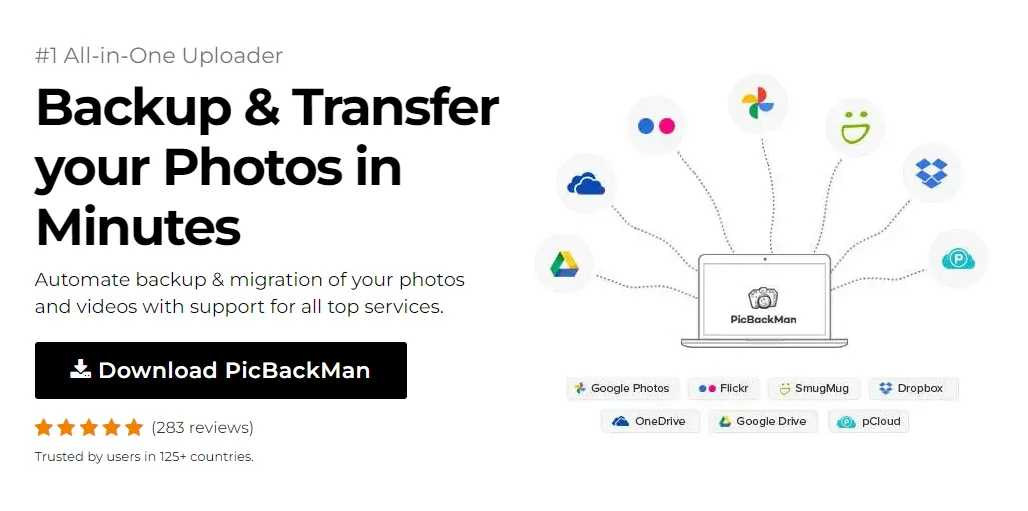
Why is it the #1 bulk uploader?
- Insanely fast!
- Maintains folder structure.
- 100% automated upload.
- Supports RAW files.
- Privacy default.
How can you get started?
Download PicBackMan and start free, then upgrade to annual or lifetime plan as per your needs. Join 100,000+ users who trust PicBackMan for keeping their precious memories safe in multiple online accounts.
“Your pictures are scattered. PicBackMan helps you bring order to your digital memories.”
Unraveling the Mystery: Why OneDrive is Slowing Down Your Computer


In today's digital age, cloud storage solutions have become an indispensable part of our lives, allowing us to store and access files from anywhere, at any time. Microsoft's OneDrive is one such popular cloud storage service, offering seamless integration with Windows operating systems. However, some users have reported experiencing a slowdown in their computer's performance, which they attribute to OneDrive. If you've been grappling with a similar issue, you're not alone. In this article, we'll delve into the potential reasons behind "OneDrive slowing down computer" and provide you with effective solutions to get your system back up to speed.
OneDrive Slowing Down Computer: A Closer Look
OneDrive, like any other software, can cause performance issues under certain circumstances. Here are some of the most common reasons why OneDrive might be slowing down your computer:
-
Sync Issues: One of the primary functions of OneDrive is to synchronize files between your local storage and the cloud. However, if the sync process encounters problems, such as conflicts, corrupted files, or network connectivity issues, it can lead to a significant drain on system resources, resulting in a noticeable slowdown.
-
Resource-intensive Operations: Certain OneDrive operations, such as uploading or downloading large files, can consume a considerable amount of processing power and network bandwidth. This can cause your computer to slow down, especially if you have limited system resources or a slow internet connection.
-
Outdated Software: Using an outdated version of OneDrive can also contribute to performance issues. Microsoft regularly releases updates to address bugs, improve compatibility, and enhance overall performance. Failing to keep OneDrive up-to-date can lead to inefficiencies and potential conflicts with other software or system components.
-
Background Processes: OneDrive runs several background processes to ensure seamless file synchronization and integration with other Microsoft services. In some cases, these processes can become resource-intensive, leading to a slowdown in overall system performance.
-
System Configuration: Your computer's hardware configuration, such as available RAM, CPU speed, and storage capacity, can also play a role in determining how efficiently OneDrive operates. If your system resources are already stretched thin, the additional load from OneDrive can exacerbate performance issues.
Troubleshooting OneDrive Slowdown: Effective Solutions
Now that you understand the potential reasons behind the "OneDrive slowing down computer" issue, let's explore some effective solutions to help you address this problem:
1. Pause Sync and Clear Cache
If you're experiencing a sudden slowdown while using OneDrive, the first step you can take is to pause the sync process temporarily. This will prevent OneDrive from consuming system resources while you investigate the issue further. Additionally, clearing the OneDrive cache can help resolve any potential conflicts or corrupted data that might be causing performance issues.
2. Disable Offline Files
OneDrive's offline file feature, while convenient, can also be a resource hog, especially if you have a large number of files synced. Disabling this feature can help alleviate the strain on your system's resources and potentially improve performance.
3. Optimize OneDrive Settings
OneDrive offers various settings that you can tweak to optimize its performance. For instance, you can adjust the upload and download rates, limit the number of files to sync, or exclude specific file types or folders from synchronization. By customizing these settings according to your usage patterns and system capabilities, you can significantly improve OneDrive's performance.
4. Update OneDrive
As mentioned earlier, keeping OneDrive up-to-date is crucial for ensuring optimal performance. Microsoft regularly releases updates to address known issues and introduce performance improvements. By updating OneDrive to the latest version, you can take advantage of these enhancements and potentially resolve any existing performance-related bugs.
5. Disable Automatic Backup
If you're not actively using OneDrive's backup feature, it's recommended to disable it. The automatic backup process can consume significant system resources, especially if you have a large number of files to back up. Disabling this feature can help free up resources and potentially improve overall system performance.
6. Check for Hardware Limitations
In some cases, the issue of "OneDrive slowing down computer" may be due to hardware limitations. If your computer's hardware specifications are outdated or insufficient, it can struggle to handle the demands of OneDrive and other applications simultaneously. In such cases, upgrading your hardware, particularly RAM and storage, can provide a significant performance boost.
Quick Tip to ensure your videos never go missing
Videos are precious memories and all of us never want to ever lose them to hard disk crashes or missing drives. PicBackMan is the easiest and simplest way to keep your videos safely backed up in one or more online accounts. Simply Download PicBackMan (it's free!), register your account, connect to your online store and tell PicBackMan where your videos are - PicBackMan does the rest, automatically. It bulk uploads all videos and keeps looking for new ones and uploads those too. You don't have to ever touch it.
FAQs
How do I stop OneDrive from taking over my computer?
To prevent OneDrive from consuming excessive system resources, you can try the following steps:
- Pause syncing: Right-click the OneDrive icon in the system tray and select "Pause syncing" to temporarily stop the sync process.
- Adjust sync settings: In the OneDrive settings, navigate to the "Account" tab and click "Choose folders" to select which folders you want to sync, limiting the number of synced files.
- Disable OneDrive's bandwidth usage: In the OneDrive settings, go to the "Network" tab and move the "Upload" and "Download" sliders to the lowest position to limit OneDrive's bandwidth usage.
- Consider uninstalling OneDrive: If the issue persists, you may want to uninstall OneDrive from your computer and explore alternative cloud storage solutions.
Why is Microsoft OneDrive taking so much CPU?
Microsoft OneDrive may consume a high amount of CPU resources due to several reasons:
- File synchronization: OneDrive constantly syncs files between your computer and the cloud, which can be a CPU-intensive process, especially when dealing with large file transfers or multiple file operations.
- Background processes: OneDrive runs several background processes to maintain synchronization and integration with other Microsoft services, which can contribute to increased CPU usage.
- Software issues: Outdated or buggy versions of OneDrive may cause inefficient CPU utilization, leading to higher CPU consumption.
- Hardware limitations: If your computer's hardware specifications, such as CPU and RAM, are insufficient, OneDrive may put additional strain on the system, resulting in higher CPU usage.
What happens if I turn off OneDrive?
If you turn off OneDrive, the following will occur:
- File synchronization will stop: OneDrive will no longer sync files between your computer and the cloud storage. Any changes made to local files will not be reflected in the cloud, and vice versa.
- Cloud storage access: You will lose the ability to access and manage your files stored in the OneDrive cloud storage directly from your computer.
- Integration with other Microsoft services: Features that rely on OneDrive integration, such as Office 365 online collaboration or automatic backup of specific folders, may be affected or disabled.
- Resource usage: Turning off OneDrive will free up system resources previously utilized by the application, potentially improving overall computer performance.
However, it's important to note that turning off OneDrive means you'll lose the benefits of cloud storage and seamless file synchronization across devices. If you plan to use an alternative cloud storage solution, ensure you have a backup of your data before disabling OneDrive.
How do I stop OneDrive from taking up hard drive space?
To prevent OneDrive from consuming excessive hard drive space, you can follow these steps:
- Unlink your OneDrive folder: Right-click the OneDrive icon in the system tray, select "Settings" > "Unlink this PC," and choose the option to remove all locally synced OneDrive data.
- Exclude specific folders: In the OneDrive settings, go to the "Account" tab, click "Choose folders," and deselect the folders you don't want to sync locally.
- Use selective sync: Instead of syncing the entire OneDrive folder, enable selective sync to only download specific files or folders to your local drive.
- Clear the OneDrive cache: In the OneDrive settings, navigate to the "Account" tab and click "Clear Cache" to remove temporary files and free up disk space.
- Adjust the storage settings: Explore the OneDrive storage settings and adjust the available storage quota or configure the application to only sync files on-demand, rather than storing them locally.
Why is my C drive full because of OneDrive?
There are a few potential reasons why your C drive (typically the primary system drive) could be filling up due to OneDrive:
- Local sync folder location: By default, OneDrive syncs files to a folder located on your C drive. If you have a large amount of data synced with OneDrive, it can quickly consume space on your system drive.
- Temporary files and cache: OneDrive may accumulate temporary files and cache data on your C drive during the sync process, contributing to the consumed space.
- System settings: Depending on your computer's settings, certain system files or user data may be stored on the C drive, leaving less available space for other applications like OneDrive.
- Limited drive capacity: If your C drive has a relatively small capacity, even a moderate amount of synced data from OneDrive can quickly fill up the available space.
To resolve this issue, you can try moving the OneDrive folder to a different drive with more available space, clearing the OneDrive cache, adjusting sync settings to limit the amount of data synced locally, or consider upgrading your C drive to a larger capacity.
Why is OneDrive taking up all my storage?
OneDrive may be consuming a significant amount of your storage space due to the following reasons:
- Large file sync: If you have synced a large number of files or folders with OneDrive, it can quickly fill up your available storage space, both in the cloud and locally on your computer.
- Backup and sync settings: Depending on your OneDrive settings, certain folders or file types may be set to automatically back up or sync, leading to increased storage usage.
- Temporary files and cache: OneDrive can accumulate temporary files and cache data during the sync process, contributing to the consumed storage space.
- Multiple devices syncing: If you have multiple devices syncing with the same OneDrive account, the storage usage can add up across all devices.
- Limited storage quota: If you have a lower storage quota allocated for your OneDrive account, it may quickly become full, especially if you have a large amount of data to sync.
To address this issue, you can review and adjust your OneDrive sync settings, selectively sync only the necessary files, clear the cache regularly, and consider upgrading your OneDrive storage plan or exploring alternative cloud storage solutions if your storage needs exceed the available quota.
Conclusion
OneDrive is a powerful and convenient cloud storage solution, but like any other software, it can sometimes cause performance issues. By understanding the potential reasons behind the "OneDrive slowing down computer" problem and implementing the suggested solutions, you can effectively address this issue and enjoy a smooth and seamless experience with OneDrive. Remember, regular maintenance, software updates, and system optimization are key to ensuring optimal performance and preventing potential slowdowns.






